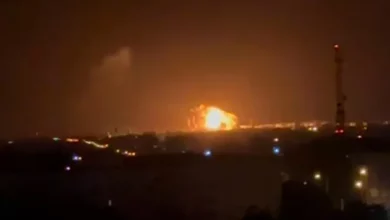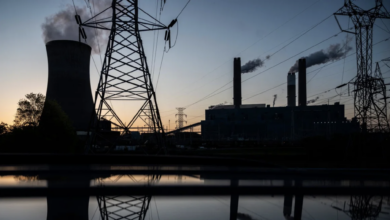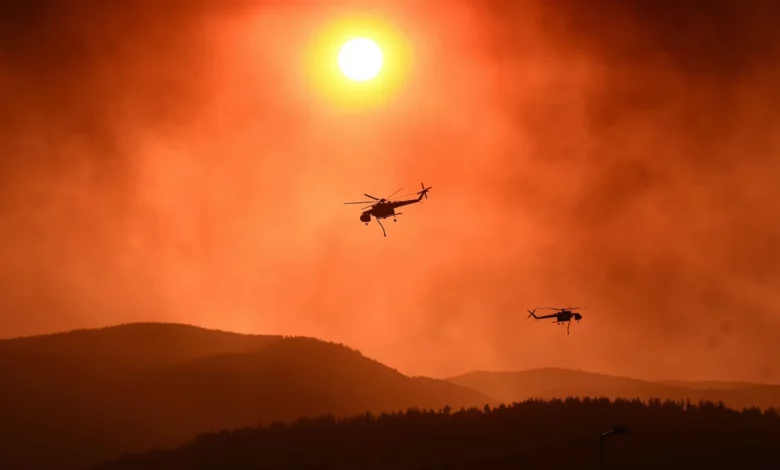
The dead, found near a village in northern Greece, may have been migrants, the fire brigade said Tuesday. Another person was killed in a fire northwest of the capital Athens on Monday.
As dozens of wildfires scorch Greece, other parts of the region are suffering under intense heat, as Europe’s summer of extremes continues. More than 20 countries are under heat warnings with temperatures reaching record-breaking levels in some areas.
‘It’s like war conditions’
Hundreds of firefighters in Greece are battling 65 wildfires that have broken out in the last few days, state-run ANMA news agency reported on Monday, citing Yiannis Artopios, an official from the Greek fire brigade.
Some of the major ongoing wildfires are in the Greek northeastern town of Alexandroupolis where 13 communities have been evacuated since Saturday, according to the fire brigade.
Two hundred patients were evacuated from two hospitals in the town on Tuesday. An Alexandroupolis Hospital Nurse, Nikos Gioktsidis, compared the situation to war, telling Reuters, “I’ve been working for 27 years, I’ve never seen anything like this. It’s like war conditions, really.”
As of Monday, fires have burned through more than 8,500 hectares (21,000 acres), according to the European Union’s Copernicus Emergency Management Service.
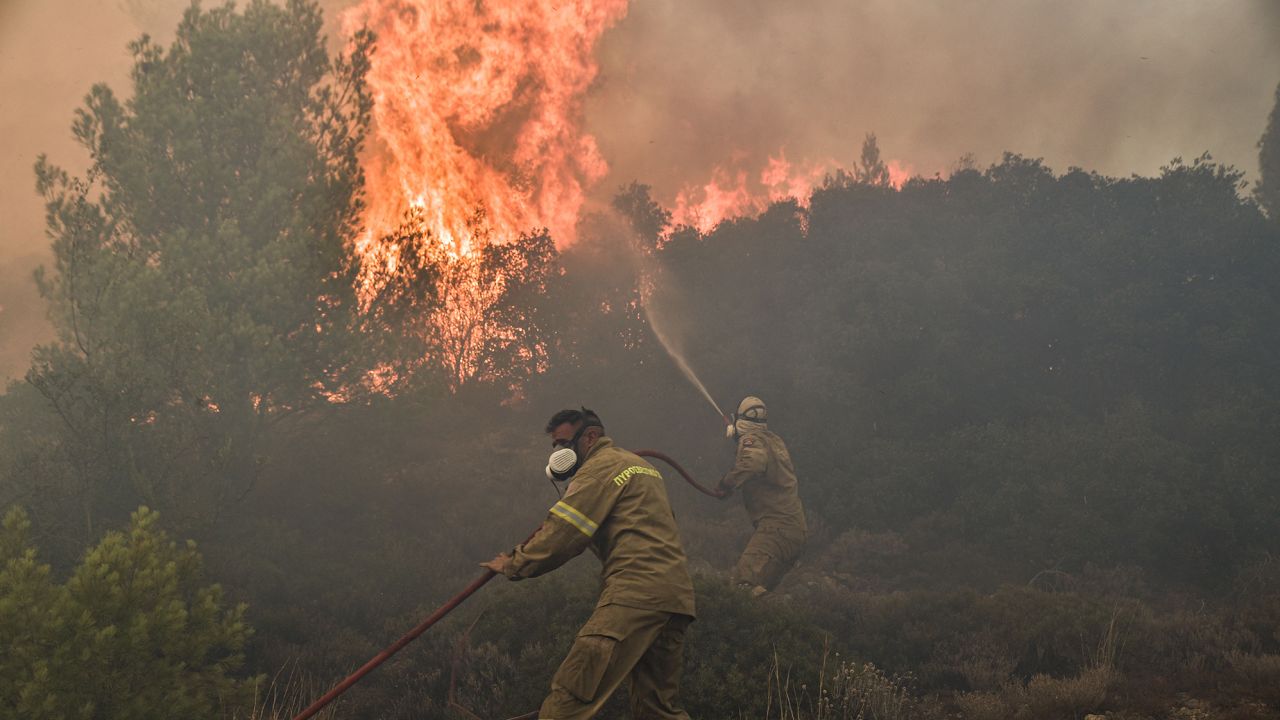
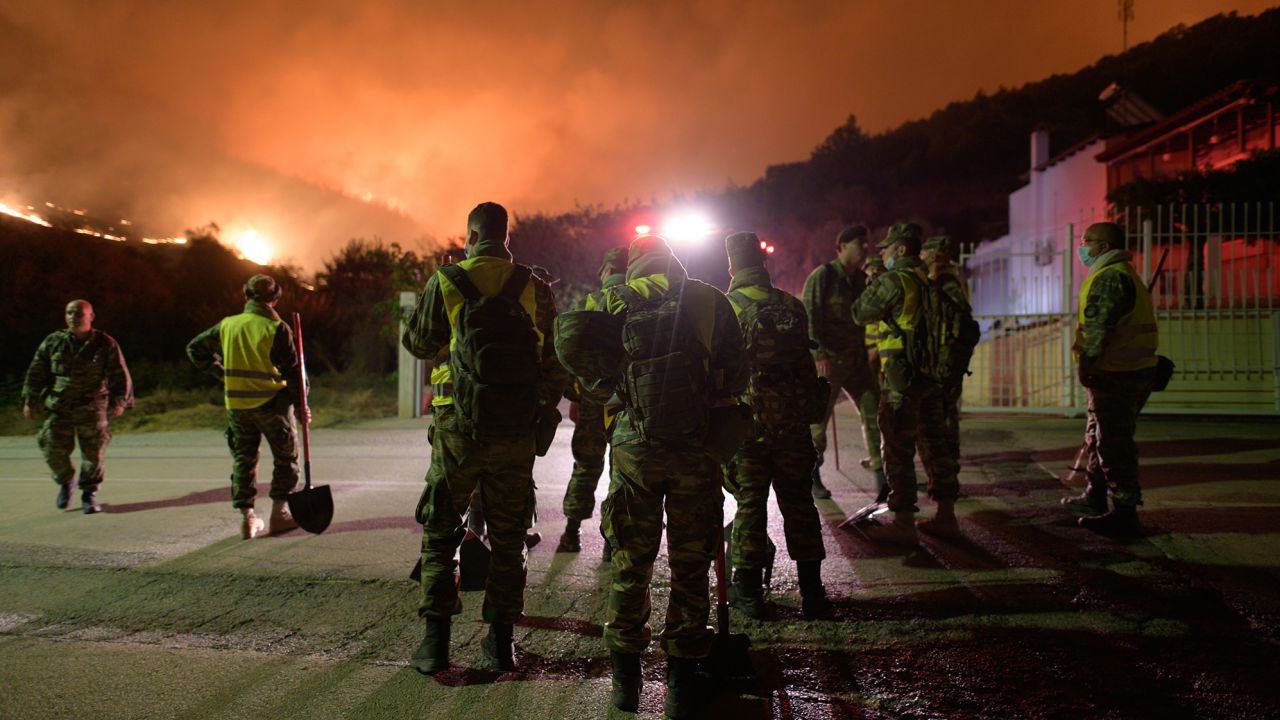
The European Union has deployed two firefighting aircraft from Cyprus and a team from Romania with 50 firefighters to help Greece control the fires.
“We are in state of emergency of ‘Category 5’ as we will be also on Tuesday due to the very high temperatures and the gale force winds,” Artopios from the Greek fire brigade said on Monday, according to ANMA.
Greece has had a devastating wildfire season this year – experiencing its worst recorded fires in July since at least 2003.
Last month, deadly wildfires tore through parts of the Greek island of Rhodes, forcing thousands of tourists to flee their hotels in what Greek officials said was the largest evacuation effort in the country’s history.
Out of control wildfires also continue to burn in Tenerife, in Spain’s Canary Islands, with more than 12,000 people forced to flee their homes.
The Spanish government will declare the areas affected by the wildfires in Tenerife as a “disaster zone” once the blaze is under control, the country’s Prime Minister Pedro Sánchez said on Monday during a visit to the Spanish island.
Red heat warnings
As parts of Greece and Spain burn, temperatures are reaching record levels in other parts of Europe.
There are 21 countries across the continent under heat warnings, with six under red heat warnings – the highest level – said MeteoAlarm, a network of European national weather services.
France is one of the worst affected.
The country’s national meteorological agency Météo France warned on Sunday that this week’s heatwave would be the “hottest of summer 2023,” adding that it is rare for a heatwave of “such intensity” to occur so late in the summer.
“Red-level” heat wave alerts have been declared in 19 French departments as of Tuesday, including Ardèche, Drôme, Haute-Loire and Rhône.
These regions are all experiencing very high temperatures, with some pushing above 40 degrees Celsius (104 degrees Fahrenheit).
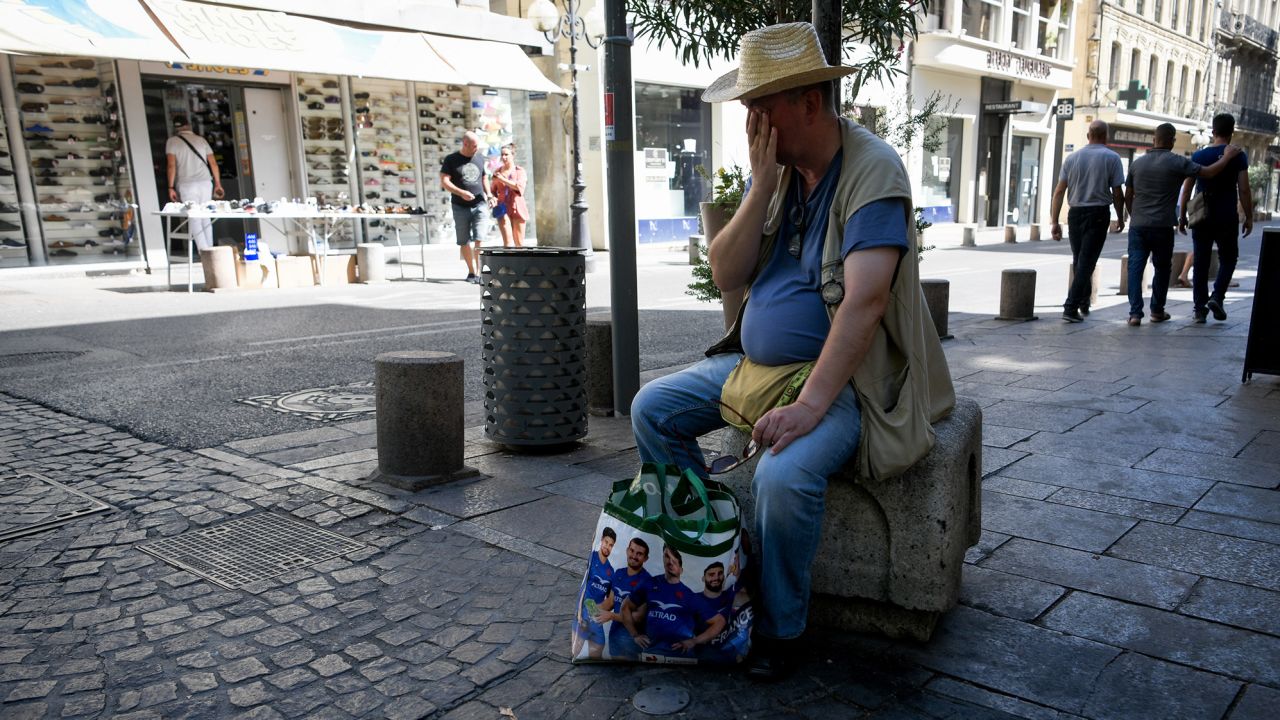
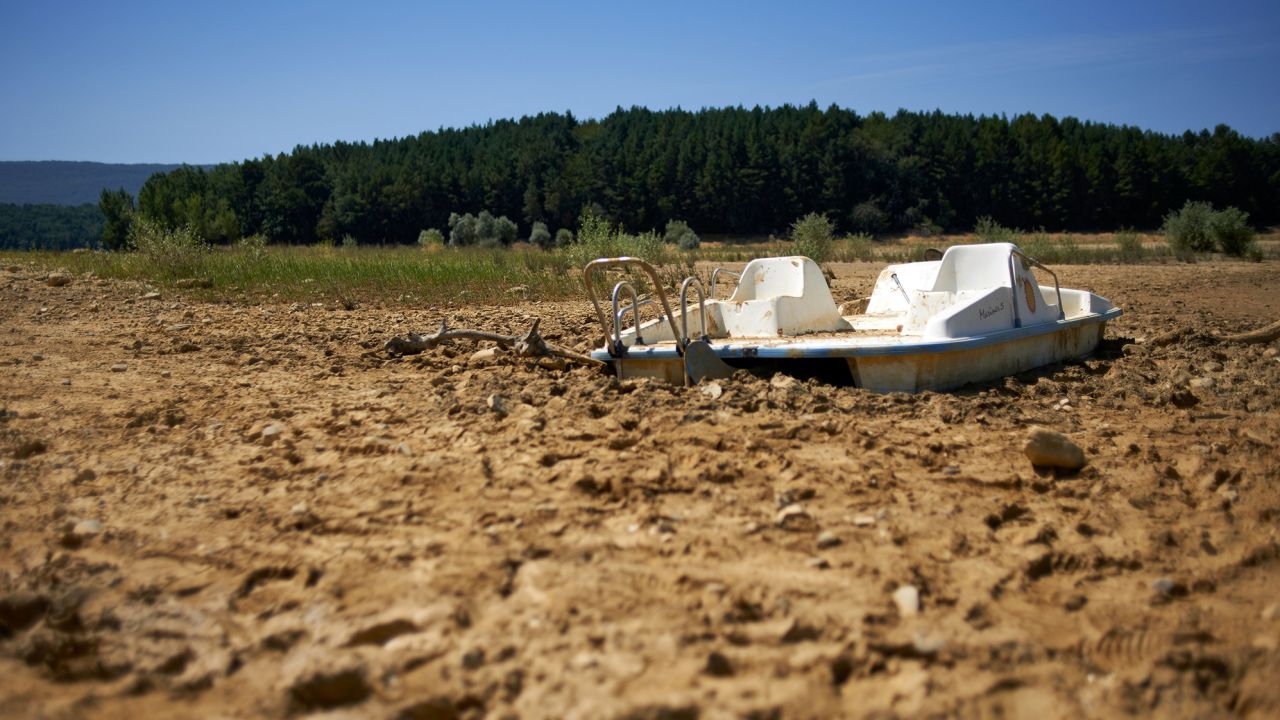
Speaking to CNN affiliate BFMTV, French health minister Aurélien Rousseau said on Monday that “France could reach temperatures never measured before.”
Some records have already been broken, according to data from Maximiliano Herrera, a climatologist and weather historian.
All -time records were broken in three communes, he said, including Puy St. Martin, a commune in Drôme, where temperatures reached 42.5 degrees Celsius (108.5 Fahrenheit) on Monday.
Rousseau warned French people to be “extremely vigilant” in the coming days, stressing that the protection of the elderly, young children, isolated and disabled people remains at “the core” of the government’s concerns.
Temperatures are also high in Italy, which has grappled with several searing heat waves this year. Savona, in the northwest, saw an all-time record high of 39.1 degrees Celsius (102.4 Fahrenheit) on Monday.
Fears for Swiss glaciers
Switzerland, too, is experiencing high temperatures.
MeteoSchweiz, the Swiss weather service, said that a new record had been broken for the height of the “freezing level” – the point above the ground at which temperatures fall to 0 degrees Celsius (32 Fahrenheit).
A weather balloon had to climb to a record 5,298 meters (17,381 feet) above sea level before the zero degree limit was reached, MeteoSchweiz posted on X (formerly known as Twitter) on Monday. This is the highest freezing level since records began in 1954.
There are serious concerns for what this means for the health of the country’s glaciers. Last year, Swiss glaciers recorded their worst melt rate since records began, losing six percent of their remaining volume.
Europe’s heat wave is expected to continue until at least Wednesday, before a cooling pattern brings some relief.
Scientists are clear that the kind of extreme weather Europe and other parts of the Northern Hemisphere are experiencing this summer will only become more common and more severe as humans continue to burn planet-heating fossil fuels.
July was the planet’s hottest month on record and scientists found that the heat wave that scorched the Mediterranean, as well as parts of the US, would have been virtually impossible without the human-caused climate crisis.
CNN’s Robert Shackelford, Niamh Kennedy, Pierre Bairin, Claudia Colliva, Claudia Rebaza, Alex Hardie, Maya Szaniecki, Jessie Gretener, Chris Liakos and Catherine Nicholls contributed reporting

